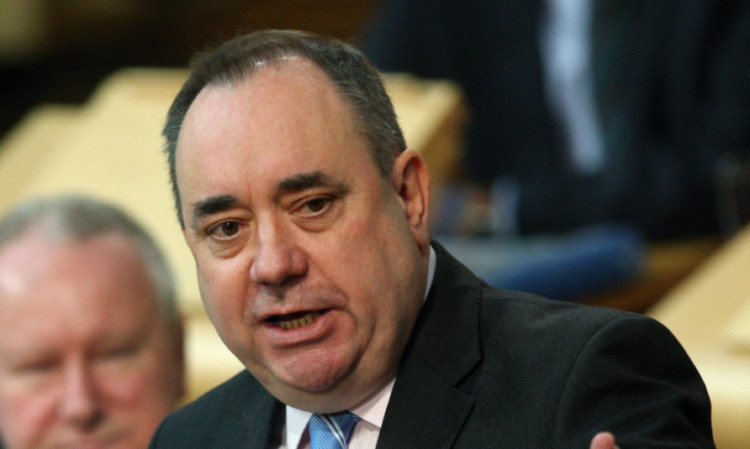
Alex Salmond has been dealt a major blow by a new opinion poll which shows less than 30% of Scots share his independence dream.
On the eve of the new parliamentary year at Holyrood, the latest poll has revealed the biggest gap between Yes and No voters since the wording of the referendum question was agreed in January.
The poll of more than 1,000 Scots also appears to dent the Yes camp’s hopes of converting undecided voters with just one in in ten people now saying they’re unsure of which side to back.
That’s down from one in five earlier this year.
A total of 59% of Scots would vote No in the referendum if it was held tomorrow according to the YouGov poll, with the result coming just weeks before the one-year-to-go milestone.
John Curtice, Professor of Politics at the University of Strathclyde, said: “Whichever way you slice it this is not good news for the Yes side. Clearly there is still time to turn things around but that
window of opportunity is shortening all the time.
“We are not seeing any real evidence of progress for Yes certainly not of the kind they need to start making serious inroads into the No lead.”
Since the referendum deal and question was finalised support for independence peaked at 37% in July but has dropped since.
The gap between Yes and No was just 10 points in one poll in March this year but has now stretched to 30 in the latest YouGov poll.
The poll of 1,171 adults was carried out by YouGov late last month on behalf of Devo Plus, a campaign group pressing for more powers to be given to Holyrood.
It asked: “If there was a referendum tomorrow on Scotland leaving the UK and becoming an independent country and this was the question, how would you vote?
“Should Scotland be an independent country?”
A total of 29% said yes, 59% said no, 10% said don’t know and 2% said they would not vote. The same question was asked by the same pollsters in May and the response was similar with 30% in favour of separation, 56% against and 12% undecided.
Better Together Campaign Director Blair McDougall said: “This is another encouraging poll for Better Together. First because undecided voters continue to turn their back on the dishonest independence campaign. Second because it shows that we are reaching out to Yes voters with our positive message about continuing the success of devolution. With a year to go, Yes Scotland are further behind than when their campaign began.
“This poll will surely add to the sense of crisis in the nationalist camp.”
The most obvious sliver of hope for the pro-independence camp is that the referendum is not taking place tomorrow and they have just over a year to turn things round.
The internal polling system used by Yes Scotland uses a one-to-10 scoring system with one or two most opposed to breaking away and nine or 10 being keenest on it.
The pro-independence group claims its research shows there are plenty of soft No voters out there to be had. They also point to separate polling which supports their central argument that the more people learn about independence the more they are attracted to it.
As The Sunday Post revealed last month, this internal polling asked just over 1,000 Scots if they felt “well enough informed” about the issues surrounding the referendum.
Of those who say they do know enough around half of the sample at 47% said they would be voting Yes, just one point behind those backing the Union.
Another question asked by YouGov on behalf of DevoPlus also reveals a quarter of Labour voters still need to be persuaded to vote for the Union. It is these traditional Labour voters who will be vital to any Nationalist resurgence in the coming 13 months. A spokesman for Yes Scotland said: “Next year’s referendum is about two choices. One is sticking with a Westminster system that isn’t working for Scotland and has led to the UK becoming one of the most unequal countries in the world.
“The other is an opportunity to make decisions that match our own priorities and aspirations and to build a fairer and more prosperous country. Only a Yes vote can deliver that opportunity.”

Enjoy the convenience of having The Sunday Post delivered as a digital ePaper straight to your smartphone, tablet or computer.
Subscribe for only £5.49 a month and enjoy all the benefits of the printed paper as a digital replica.
Subscribe